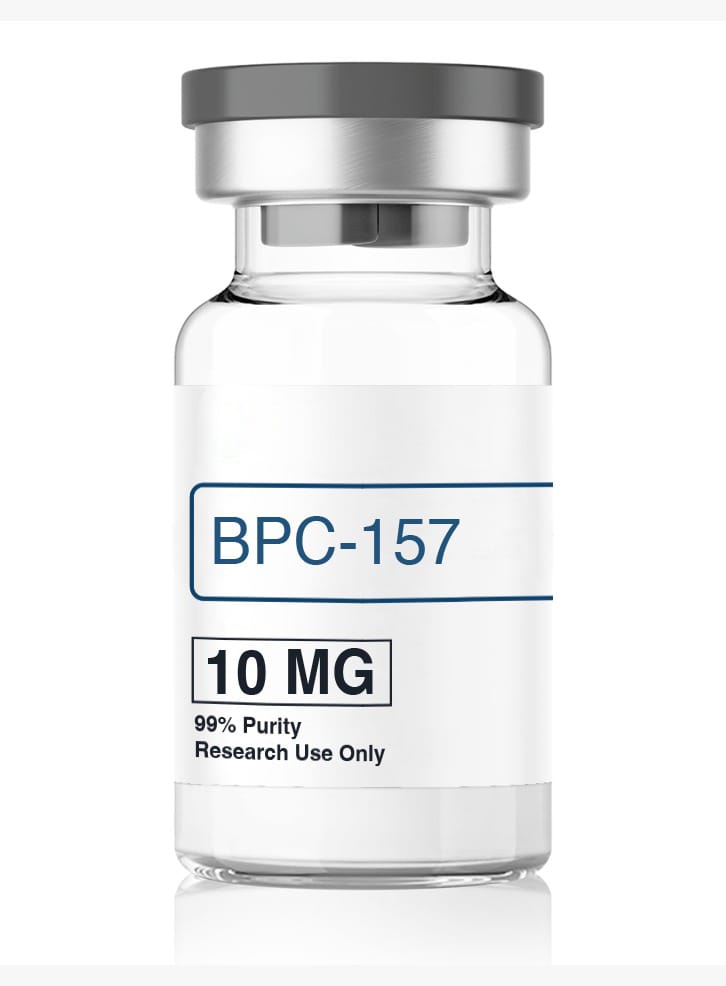
BPC-157
BPC-157 is a research peptide being studied for its wound healing and regenerative effects.
Compound Overview
Class of Compound:
Peptide
Mechanism of Action:
BPC-157 is known to stimulate vascular endothelial growth factor, which triggers the formation of blood vessels. Also, it blocks the growth-inhibiting action of 4‐hydroxynonenal. Further, it upregulates multiple growth receptors in the body and stimulates the production of fibroblasts, vital to the synthesis of collagen.
Notable Studies:
Also Known As:
PL 14736, Body Protection Compound 157
Research Applications:
- Wound healing
- Digestive health
- Cognitive health
- Muscle growth
Risks:
- Unclear safety profile
- Lack of randomized controlled trials
- Prohibited by WADA
Chemical Structure

What is BPC-157?
BPC-157 refers to Body Protection Compound-157, a naturally occurring peptide found in human stomach juices. Composed of a sequence of 15 amino acids, the peptide can also be found in trace amounts in the gastric fluids of other mammals.
The peptide plays a fundamental role in preserving the lining of the GI tract. However, researchers are interested in its application in other areas of the body—particularly in regards to wound healing, neuroprotection, and muscle and tissue growth.
Much of the research on BPC-157 to date has been done in laboratory animals, but researchers are now using the findings to date to help direct further research into the ways BPC-157 may be beneficial for human subjects.
It’s important to understand the potential side effects and risks of BPC-157 - along with dosing considerations, and legal status of the peptide - before purchasing it for research.
Our research team covers all of these questions below, before providing our top recommendation on where qualified researchers can buy BPC-157 online.

What Does BPC-157 Do?
BPC-157 was first isolated from body protection compound (BPC), which is found in the gastric juices and is part of the digestive process [1]. It is composed of 15 amino acids, with the following chemical composition:
H-Gly-Glu-Pro-Pro-Pro-Gly-Lys-Pro-Ala-Asp-Asp-Ala-Gly-Leu-Val-OH [2].
The role of BPC in the gastric juice is an important one. As a compound that can promote healing, it helps protect the gastrointestinal tissues from damage and can help prevent and heal stomach ulcers or other injuries to the intestinal lining.
It also promotes angiogenesis, or the formation of new blood vessels, allowing for increased oxygenation to the tissues.
Because of these properties, isolated BPC-157 is of great interest to researchers. The peptide shows potential in a number of applications outside of the GI tract, including in its promotion of healing, muscle growth and repair, and injury recovery.
